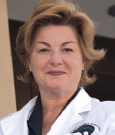The National Cancer Institute (NCI) recently awarded Huntsman Cancer Institute (HCI) at the University of Utah and The UNM Cancer Center (UNMCC) at the University of New Mexico Comprehensive Cancer Center status.
An NCI-Designated Comprehensive Cancer Center must demonstrate depth and breadth of cancer research, as well as substantial transdisciplinary research that bridges these scientific areas and changes cancer care. In addition, a comprehensive cancer center must demonstrate professional and public education and outreach capabilities, including the distribution of clinical and public health advances in the communities it serves. The evaluations were done by a team of national cancer experts and included a rigorous scientific review, a competitive grant process, and a site visit.
Huntsman Cancer Institute
HCI is the only cancer center to be designated by the NCI in the five-state Intermountain West region, which includes Utah, Wyoming, Montana, Idaho, and Nevada.
The comprehensive cancer center designation recognizes not only cancer research, training, and public outreach programs that have long been conducted at HCI, but acknowledges the depth and breadth of HCI research in each of the three major cancer research areas: laboratory, clinical, and population-based research. The designation also recognizes HCI for the impact of its research findings on national cancer care guidelines and improved patient outcomes.
“This designation is the result of professionalism and exceptional expertise of our physicians, scientists, and administrative staff at Huntsman Cancer Institute,” said Jon M. Huntsman, Sr, Huntsman Cancer Institute’s Founder and Chief Benefactor. “Only a small percentage of the nation’s cancer programs have the excellence necessary to receive comprehensive cancer center status. What a difference this will make to the cancer patients in our state, in the region, and in the world.”
NCI evaluates each of its designated cancer centers every 5 years. Since the previous evaluation in 2009, when HCI applied and obtained renewal of its cancer center status, it has recruited 33 new program members and garnered 20% more NCI funding of its studies. HCI opened more than 60 new collaborative grants and doubled enrollment in clinical trials of cancer treatments in the 5-year project period. In addition, building expansion completed in 2011 doubled the size of the cancer hospital, and construction is underway that will double the size of HCI’s research facilities upon its completion in 2017.
“Huntsman Cancer Institute stands as an exceptional model of the best that health care and cancer care can be,” said Vivian Lee, MD, PhD, MBA, Senior Vice President of University of Utah Health Sciences. “The Cancer Center has developed a top-notch system that integrates researchers and clinicians to work closely together to advance cutting edge care and marry science with compassion.”
HCI’s research excellence has been made possible by generous support of the Huntsman family and the Huntsman Cancer Foundation, which supports HCI’s research mission through philanthropic contributions. A 10-member External Advisory Board provides planning and evaluation direction to HCI; it includes such outstanding scientists as Edward Benz Jr, MD, President of Dana-Farber Cancer Institute; Nobel Laureate Elizabeth Blackburn, PhD, of the University of California at San Francisco; and Brian Druker, MD, Director of the Oregon Health Sciences University Knight Cancer Center.
HCI’s research strategy is to translate genetic understanding of cancer into individualized risk assessment, diagnosis, and treatment. HCI and its researchers have earned international recognition for their work in identifying gene mutations for hereditary colon cancer, breast and ovarian cancers, melanoma, neurofibromatosis, and paraganglioma.
University of New Mexico Cancer Center
UNMCC’s designation makes it the only such cancer center in New Mexico.
“15 years ago we made a promise—to be of service to the people of New Mexico and to overcome New Mexico’s cancer burden—and we committed ourselves to building New Mexico’s finest, most comprehensive cancer treatment program,” said Cheryl Willman, MD, Director and CEO of UNMCC.
Following submission of the 1,486-page application in September of 2014, UNMCC underwent a second stage review with 32 site visitors who evaluated the Center onsite for a 2-day period in February 2015. A detailed report and evaluation was generated which was then reviewed by the National Cancer Advisory Board in June 2015.
At UNMCC, 116 doctors in every cancer specialty work with over 500 health care professionals to provide care to more than 10,000 cancer patients each year in more than 135,000 clinic visits. These patients come from every county in New Mexico, as well as from out of state. In addition, UNMCC partners with Memorial Medical Center (MMC) in Las Cruces, where UNM physicians work in concert with MMC physicians and staff to provide treatment to an additional 600-700 Southern New Mexicans each year.
UNMCC, working with community health systems across the state, built the New Mexico Cancer Care Alliance, a statewide clinical trials network that provides access to new cancer drugs and treatments in more than 160 studies each year.
UNMCC has also joined a partnership with other NCI Cancer Centers to build the Total Cancer Care/ORIEN project, in which all UNM cancer patients will have the opportunity to have their cancer tissues undergo advanced genome sequencing, matching them to the best targeted treatments for their disease.
Supported by more than $72 million annually in research funds, UNMCC scientists work with partners at Los Alamos and Sandia National Laboratories, Lovelace Respiratory Research Institute, and New Mexico State University to develop more effective cancer diagnostics and treatments. The Center’s team of 132 cancer scientists has developed new diagnostics and drugs for leukemia, melanoma, and cancer of the breast, ovary, prostate, liver, pancreas, and brain. Since 2010, they have been awarded 33 new patents and have started 13 new biotechnology companies.
The UNMCC education and training programs were particularly noted, with more than 50% of students representimg minority and underserved groups. Since 2010, the Center has trained over 250 cancer scientists and over 168 cancer physicians and healthcare professionals.
NCI Comprehensive Cancer Centers
Alabama: University of Alabama
Arizona: Arizona Cancer Center
California: Chao Family Comprehensive Cancer Center, City of Hope, Jonsson Comprehensive Cancer Center, UC San Diego Moores Cancer Center, UCSF Helen Diller Family Comprehensive Cancer Center, UC Davis Comprehensive Cancer Center, USC/Norris Comprehensive Cancer Center (Los Angeles)
Colorado: University of Colorado Cancer Center
Connecticut: Yale Cancer Center
District of Columbia: Lombardi Comprehensive Cancer Center
Florida: H. Lee Moffitt Cancer Center
Illinois: Robert H. Lurie Comprehensive Cancer Center, University of Chicago Comprehensive Cancer Center
Iowa: The Holden Comprehensive Cancer Center at Univ. of Iowa
Maryland: Sidney Kimmel Comprehensive Cancer Center at Johns Hopkins
Massachusetts: Dana-Farber/Harvard Cancer Center
Michigan: Karmanos Cancer Institute, University of Michigan
Minnesota: Mayo Clinic, Masonic Cancer Center at Univ. of Minnesota
Missouri: Alvin J. Siteman Cancer Center, Washington University School of Medicine, St. Louis
New Hampshire: Norris Cotton Cancer Center
New Jersey: The Cancer Institute of New Jersey
New Mexico: The University of New Mexico Comprehensive Cancer Center
New York: New York-Presbyterian/ Columbia University, Memorial Sloan Kettering, Roswell Park
North Carolina: Wake Forest University, Duke Cancer Institute, UNC Lineberger Comprehensive Cancer Center
Ohio: Case Comprehensive Cancer Center, Ohio State University Comprehensive Cancer Center
Pennsylvania: Abramson Cancer Center, Fox Chase, UPMC Cancer Centers
Tennessee: Vanderbilt-Ingram, St. Jude Children’s Research Hospital
Texas: Dan Duncan Cancer Center at Baylor, MD Anderson, UT Southwestern Medical Center
Utah: Huntsman Cancer Institute
Washington: Fred Hutchinson
Wisconsin: UW Carbone Cancer Center ■



